Calls to ban books are on the rise in Canada. So is the opposition to any bans

Danny Ramadan recalls self-censoring his writing in Syria before his arrival in Canada 10 years ago. Now, as an advocate for LGBTQ+ refugees and an author exploring belonging, displacement and identity, he says navigating book challenges is a somewhat expected part of being published.
Still, when an Ontario school board shadow-banned his children's title Salma Writes a Book last fall — the school libraries carried it, but restricted students' access — Ramadan was floored.
"I expected the book to be banned in Florida. I was just extremely shocked when I found out that it was banned here, on our home turf here in Canada. It just felt dizzying," he said from Vancouver.
As Canada marks the 40th anniversary of Freedom to Read Week — first founded amid an uproar against Ontario high school seniors studying Margaret Laurence's novel The Diviners — authors, teachers and librarians are highlighting the importance of students' access to different perspectives in their school libraries and the need for schools to have (and stick to) clear policies when navigating book challenges.
In November, staffers in the Waterloo Catholic District School Board flagged to Ramadan that Salma Writes a Book, an instalment of his ongoing kids' series about a young immigrant in Canada, had been restricted in their school libraries (along with other titles).
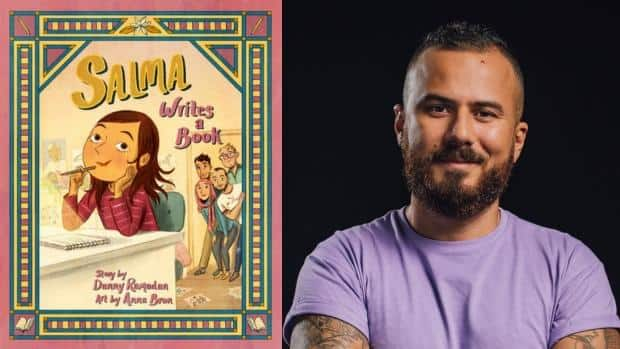
Students had to request it specifically, and a librarian or teacher was required to provide "a Catholic understanding of the book" before granting any request, Ramadan noted.
The story in question follows Salma anticipating life as a big sister after learning her mother is expecting. A secondary thread touches on an estrangement between her mom and her gay uncle — autobiographical details drawn from Ramadan's own life that he strove to present in an age-appropriate manner.
"There is a duty of care that I have when I'm creating children's literature.… I think of the best way to offer that information to the child without causing any difficult emotions or navigating things that they might not be mature enough to navigate," he said.
"This book is about my own identity," Ramadan said. "[Restricting the book is] telling me that my identity somehow should be hidden from children — is in a way telling me that my identity should be hidden from my own niece. It's extremely offensive to me."
A spokesperson for the board told CBC News the book has since been returned to its regular shelves, following a period of review.
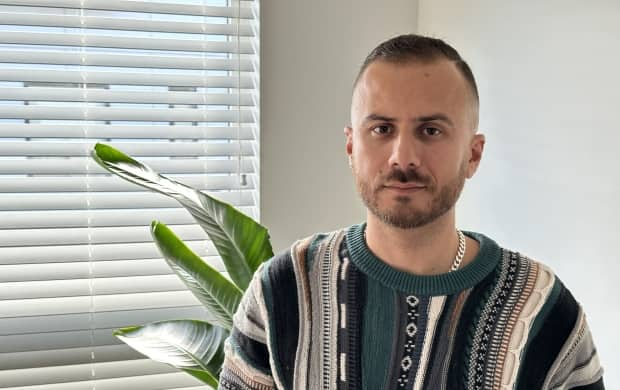
Challenges target books dealing with sex, gender diversity
Over the past few years, calls to remove books from school reading lists and library shelves have been on the rise in the U.S., most notably in states like Florida and Texas. Experts say they're also on an upswing here in Canada.
According to Canadian librarians, recent challenges primarily involve opposition to books that deal with sexuality, 2SLGBTQ+ themes or gender diversity.
Some groups have launched co-ordinated book challenges of resources used for sex and health education, criticizing specific titles for relating to or depicting sexual activity and branding the books as child pornography — including in one instance reporting it as such to the RCMP in Chilliwack, B.C.
However, others have come from families from a shared community as the author, with criticism over depictions within.
Book challenges frequently come from a place of fear, ignorance and misunderstanding, according to Winnipeg-based author David A. Robertson.
"Oftentimes, though, what happens is that the challenges come from a place where there hasn't been a real in-depth study of the literature being done," he said.
"You don't really know a novel or story unless you actually read the story — and there's a lot of nuance, a lot of stuff in there that you don't get from reading the back copy."
WATCH | David A. Robertson on how diverse storytelling helps kids learn empathy:
Robertson, a member of the Norway House Cree Nation, has experienced controversy with two of his teen-targeted graphic novels (one that referenced abuse that occurred in residential schools and the other a portrait of a missing and murdered Indigenous woman) and his middle-grade fantasy epic The Great Bear, whose central heroes are a pair of Cree foster kids.
Two of the works, 7 Generations: A Plains Cree Saga and Betty: The Helen Betty Osborne Story, appeared on a list of books to remove from libraries and classrooms in the Edmonton Public Schools board. The list was withdrawn after public pressure.
The Great Bear, meanwhile, was temporarily pulled from schools in the Durham District School Board after a campaign by individuals concerned about "Indigenous stereotypes and terminology that could perpetuate discrimination." The novel later returned to circulation (like Ramadan's) after media attention and a review.
"It was really a situation where [the challengers'] core set of beliefs, traditions, values didn't line up with what I was writing about in my books," Robertson said.
The author said he felt supported by many people who've written in to school board officials and attended meetings to defend his work.
"Canadians generally don't like that [attempts at book bans] are happening," he said. "And when it does happen, they mobilize, they come together and they stand with authors. They stand with a child's right to read."
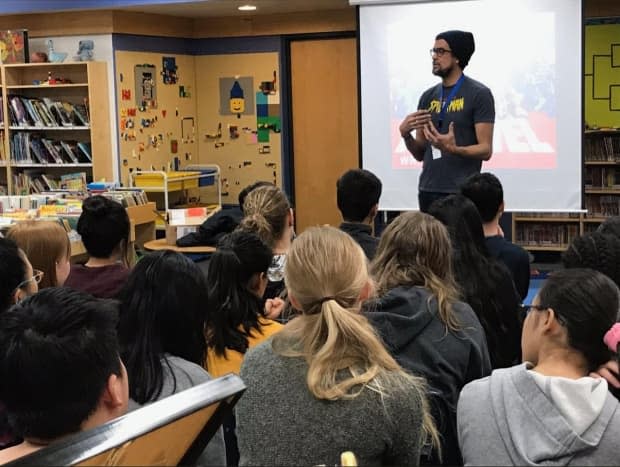
After meeting thousands of students on school visits, Robertson said he's seen empathy, understanding and a feeling of empowerment in kids when they read books from different cultures and perspectives. Books can be mirrors, windows and sliding glass doors, he explained, paraphrasing children's literature researcher Rudine Sims Bishop: a reflection of a reader, a glimpse into a life different from one's own and an opportunity to step into a character's shoes.
"Those stories need to be in the classroom," he said. "Those stories need to be in libraries.… It's doing a lot of great work, and taking them out is undoing the work that we've done, the inroads that we've made."
Challenging conversations are OK, says librarian
Wendy Burch Jones relishes matching "the right book with the right reader at the right time," curating a collection that reflects students' identities and inspiring a joy for reading. Burch Jones is a teacher-librarian — an educator with additional qualifications in literacy and librarianship — in Toronto.
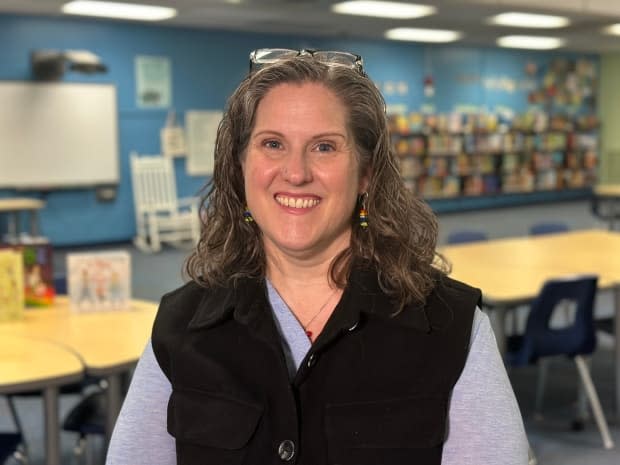
Books may be the only way some get to travel the world, she said, "so if we want our students to be able to learn about other experiences, to learn about different people in the world, where else are they going to do that?"
Not every student will love every single book, and some titles might provoke challenging conversations — and that's OK.
"Books are art, and just like any piece of art, some people are going to like it and some people aren't. But that doesn't mean that we should then not make it available to everybody else," she said.
"If a parent chooses not to read that book to their child, that is absolutely 100 per cent their choice. [But] I am not going to restrict any other child from having access to that book," said Burch Jones.
Books considered for school libraries follow selection criteria set by the respective school board, she said.
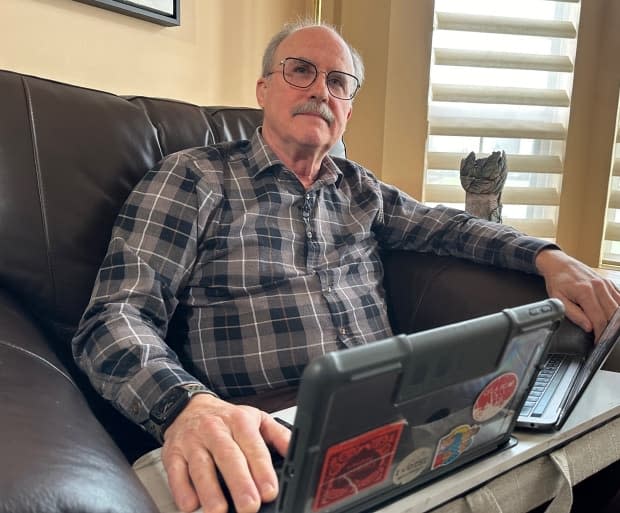
Most boards, districts and divisions have policies guiding staff on navigating book challenges with care, according to Richard Beaudry, an instructor at and coordinator of the University of British Columbia's teacher librarianship program.
Problems usually arise, he continued, when someone decides to disregard established procedures.
"We're not trying to defend every book to remain in the system, but what we want is [for] people to go through the right process," he said from Langley, B.C.
"If the process is followed by the committee in place that is supposed to review the book, usually there's a good conclusion."
School library collections must consider age-appropriateness and what students need on a curriculum level, but "we need children to be able to read books where they can understand different concepts and different views," Beaudry added. "As much as possible, we want kids to access a lot of things."
WATCH | What guides the Vancouver Public Library in choosing what books to offer:


